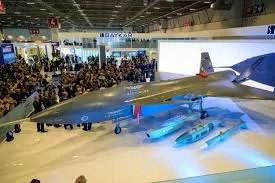Turkish Competition Authority (‘the Authority’) is authorized to take the necessary measures and implementing the relevant regulations in order to prevent companies from taking anti-competitive conducts.
Although there is no specific regulation for the defense industry prescribed under competition law, the Authority made several remarks by its previous merger, acquisition, and joint venture decisions in which defense industry companies were involved. Some of these decisions will be summarized below.
Establishing a Joint Venture for R&D
As it has been stated by the Authority’s decision dated March 15, 2018 and numbered 18-08/137-67, in which establishment of a joint venture by TUSAŞ (Turkish Aerospace) and Sarsilmaz Silah Sanayi to develop helicopter weapon systems was assessed, it is very common in the defense industry to be a sole-source on a particular area of the sector. The Authority held that creating a joint venture for the purpose of research and development with a company that operates in a different area would not create a monopoly or abuse of dominant position considering the situation.
The Authority permitted the transaction by stating that there was no competing company in the related area.
Acquisition in the Defense Industry
On its decision, dated October 06, 2015 and numbered 15-37/570-192, the Authority evaluated Lockheed Martin Corporation’s permission request for acquisition of Sikorsky Aircraft Corporation’s sole control. While accepting the demand, the Authority stated that there are certain distinctions between the defense market and the other free markets because of state-level agreements and the military products’ dependence on the defense system. Indeed, the defense industry market differs from the free market in several aspects such as the condition of an initial inspection to enter into the market and the importance of technical competition instead of price competition.
For the reasons stated above the Authority held that the acquisition of Sikorsky Aircraft Corporation’s sole control by Lockheed Martin Corporation would not constitute anti-competitive conduct, therefore the transaction was permitted.
ASELSAN and Being a Monopoly
The Authority considered the purpose of mergers and acquisition in the defense industry while evaluating process’ compliance with the related regulation on its decision, dated October 11, 2002 and numbered 02-62/774-316. The Authority referred to the strategic role of Presidency of Defense Industries (‘the PDI’) on the acquisition while assessing the case in which BAE’s shares of Mikes were to be transferred to ASELSAN in exchange of offset liabilities of BAE to the PDI. ASELSAN argued that the purpose of the acquisition was to provide a more efficient service to Turkish Armed Forces by achieving collaboration and synergy in the sector.
The Authority stated that both ASELSAN and PDI are assigned by law to fulfill the needs and demands of the Turkish Armed Forces. As a matter of fact, the Law on Defense Industry Related Regulations numbered 3238 charged PDI with organizing defense industry, specifying necessities and planning projects, accordingly, establishing a company or participating in one when required, controlling exportation and providing incentives for development of the defense industry.
While evaluating the transaction’s sensitivity, the Authority referred to the value of licenses and know-how of financially bad shaped Mikes and the importance of them for the market. As a result, regaining such investment is regarded in favor of national security.
Although ASELSAN dominates the 99.5% of the related market after the transaction, the Authority noted that even in a scenario when a defense industry company holds 100% market share it would not put the company to a dominant position if the Turkish Armed Forces are a monopsony since in that case, economic parameters such as price, supply, and output depend on the National Defense Ministry.
For the reasons stated above, the Authority permitted the transaction.
A Brief Comparative Analysis
In the United States of America, the Department of Justice and Federal Trade Commission are responsible agencies for reviewing mergers in the defense industry. These agencies act in accordance with Section 7 of the Clayton Act which requires them to prevent mergers that may substantially lessen competition or tend to create a monopoly[1]. The Agencies should rely on Department of Defense’s expertise to evaluate the potential competitive impact of mergers, teaming agreements, and other joint business arrangements between the firms in the defense industry[2].
In terms of the European Union (‘the EU’), Article 346 of Treaty on the Functioning of European Union (‘TFEU’) sets out a procedural instrument that enable Member States to derogate from the EU competition law principles by invoking ‘defense exception’. Accordingly, the defense exception can be argued when the nature of the concerned products is purely military as published within the 1958 List, and implication of exception is necessary and proportionate for the sake of national security[3].
As it has seen by the above-mentioned examples, Turkish authorities’ approach on considering defense industry’s specific nature while implying competition law principles on mergers, acquisitions and joint ventures that are related to the sector shows similarities with common practice.
[1]Department of Justice and Federal Trade Commission, Joint Statement on Preserving Competition in the Defense Industry, 12.04.2016, https://www.ftc.gov/system/files/documents/public_statements/944493/160412doj-ftc-defense-statement.pdf, (accessed: 03.03.2019)
[2]Office of the Under Secretary of Defense for Acquisition & Technology, Report of the Defense Science Board Task Force on Antitrust Aspects of Defense Industry Consolidation, 30 March 1994, Washington, p. 4.
[3]Romain Perrois, EU Competition Law, the Scope of Merger Control and the Defence Industry: Analysis of Case Law and Methodology, Helsinki Law Review, 2014/2, (231-252) p. 236-37
Author: Kaan Erdoğan



